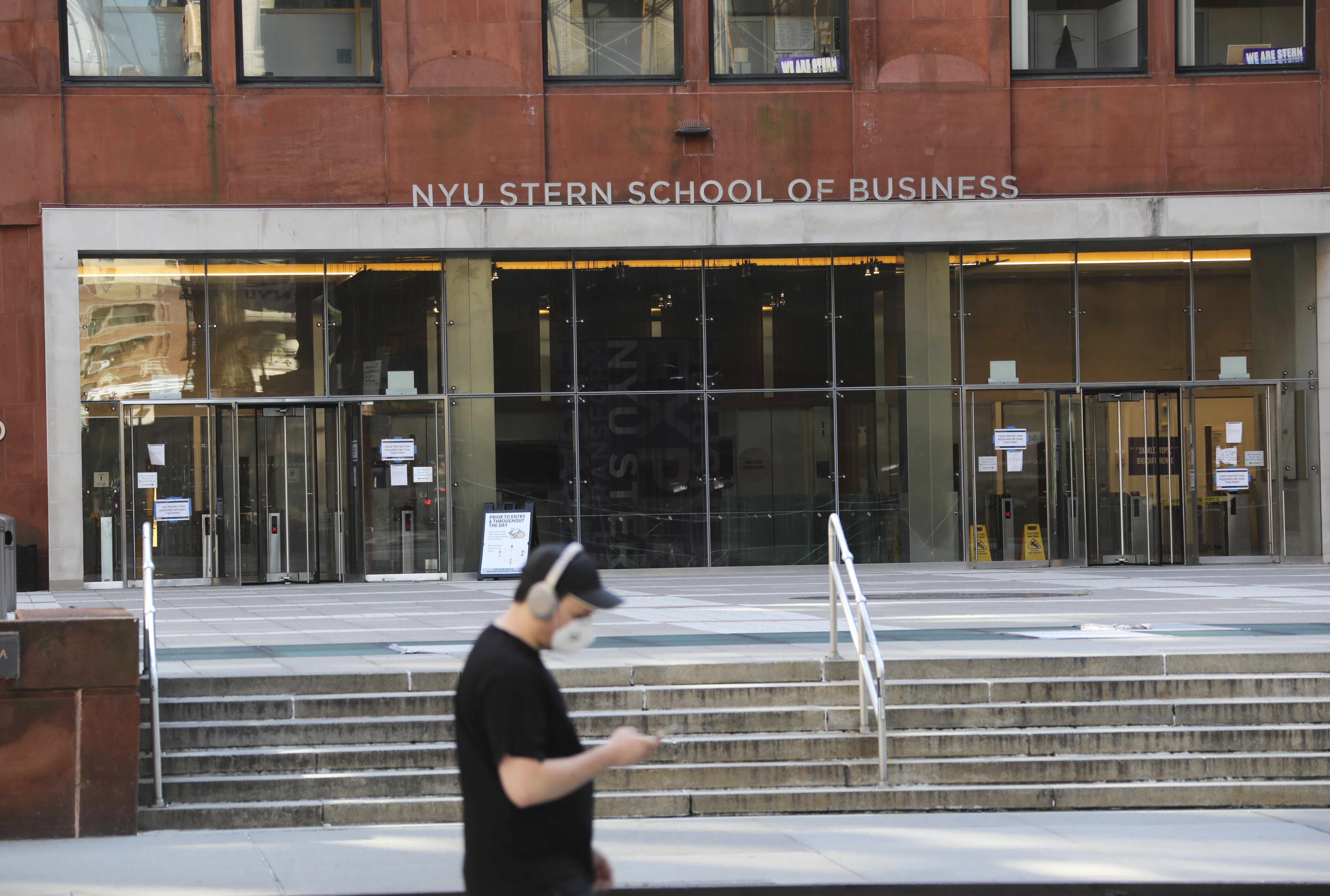As new semester starts, new fears
- By Mitchell Blatt
 0 Comment(s)
0 Comment(s) Print
Print E-mail China.org.cn, August 25, 2020
E-mail China.org.cn, August 25, 2020

Dr. Ed Fuller, an associate professor of education at Penn State University, summarizes the situation facing his university: "Penn State has 148 [cases from] pre-arrival and [on-campus] COVID-19 tests. Classes start in 36 hours. … We'll be lucky to make [it to] week 2."
Many universities in the United States have already failed to do so. The University of North Carolina shut down face-to-face classes after one week. The leadership of Michigan State and Ithaca College urged students to stay home even before their semesters started. Notre Dame canceled the first two weeks of classes.
As long as schools try to hold "normal" classes, the mass spread of the virus will continue to proliferate, and schools will continue to have to shut down after people get sick. There's just no way to prevent the spread of coronavirus at large scale gatherings given America's high infection rate.
No matter how closely prevention measures are followed, when you have dozens and dozens of people sitting side by side in a classroom for hours a day, it is inevitable that some students who unknowingly have the virus will spread it to others.
Many students will be asymptomatic cases, meaning they will not know they are sick. Universities do have testing programs in place. They are testing most of the students when they arrive. There have been over 400 cases detected at the University of Texas and the University of Central Florida, and 7,000 or so cases nationwide, before the new fall semester is even underway.
However, by the time the semester starts, students will not be getting tested every single day. Some who had previously tested negative will catch the virus later.
President Donald Trump has offered the ludicrous argument that children and young people cannot get sick from COVID-19. In fact, according to the American Academy of Pediatrics, between 0.2% and 8.8% of children who contract the virus require hospitalizations, and as many as 0.6% die.
Agreed, the young are not as likely to become seriously ill as elderly Americans. However, they spread the virus to others just as easily. And many of their professors at university are older and in the high-risk category.
There's no way to prevent the virus spreading in the U.S. even with the best of precautions being followed, but the precautions they are supposed to adopt are not being followed, either. First of all, eighteen-year-old American college students are partying. Students are being told not to party, but students are also told not to drink booze underage, and how many students abide by those rules?
Secondly, most universities still have fraternities and sororities that stay open. That means two dozen or more students living together in the same house. Earlier this summer, over 100 students living in frat houses tested positive just at the University of Washington alone.
Third, many Americans still refuse to wear face masks or are lax about covering their nose. That is especially a problem at elementary school, where young students are not good at following directions, as well as in high school.
Schools were pressing ahead with classroom activities before having to "quarantine" students and teachers who were in contact with infected students and canceling classes altogether.
One would think that after the same pattern occurs a few times, other school administrators would learn the lesson. Yet, many universities planned to open as normal in the final week of August or the first week of September, the powerhouse Southeastern Conference and the Atlantic Coast Conference even plan to launch their football seasons.
American leaders have not learned from the rest of the world. Sadly, they aren't even learning from the experiences of others in their own country and own states. The 2020 school year in the United States is going to be a disaster that will needlessly sicken and even kill many people.
We know, because we can already see it happening. And, it doesn't have to be this way.
Mitchell Blatt is a columnist with China.org.cn. For more information please visit:
http://m.formacion-profesional-a-distancia.com/opinion/MitchellBlatt.htm
Opinion articles reflect the views of their authors, not necessarily those of China.org.cn.
If you would like to contribute, please contact us at opinion@china.org.cn.



 Add your comments...
Add your comments...

